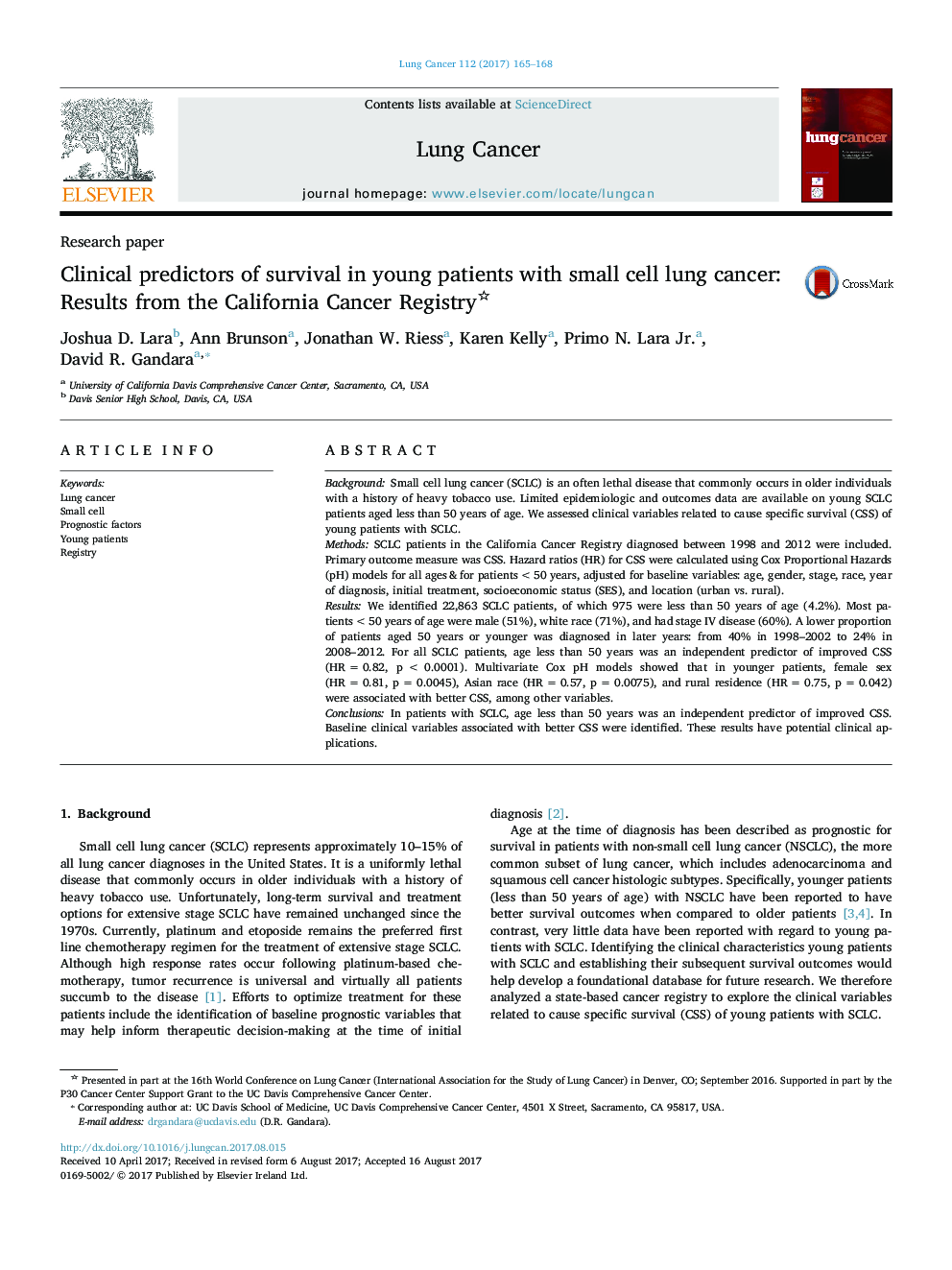| Article ID | Journal | Published Year | Pages | File Type |
|---|---|---|---|---|
| 5528369 | Lung Cancer | 2017 | 4 Pages |
â¢One of the largest registry studies of younger patients with SCLC ever reported.â¢Serves as a more contemporary foundational reference for future research in this field.â¢In patients with SCLC, age less than 50 years was an independent predictor of improved CSS.
BackgroundSmall cell lung cancer (SCLC) is an often lethal disease that commonly occurs in older individuals with a history of heavy tobacco use. Limited epidemiologic and outcomes data are available on young SCLC patients aged less than 50 years of age. We assessed clinical variables related to cause specific survival (CSS) of young patients with SCLC.MethodsSCLC patients in the California Cancer Registry diagnosed between 1998 and 2012 were included. Primary outcome measure was CSS. Hazard ratios (HR) for CSS were calculated using Cox Proportional Hazards (pH) models for all ages & for patients <50 years, adjusted for baseline variables: age, gender, stage, race, year of diagnosis, initial treatment, socioeconomic status (SES), and location (urban vs. rural).ResultsWe identified 22,863 SCLC patients, of which 975 were less than 50 years of age (4.2%). Most patients <50 years of age were male (51%), white race (71%), and had stage IV disease (60%). A lower proportion of patients aged 50 years or younger was diagnosed in later years: from 40% in 1998-2002 to 24% in 2008-2012. For all SCLC patients, age less than 50 years was an independent predictor of improved CSS (HR = 0.82, p < 0.0001). Multivariate Cox pH models showed that in younger patients, female sex (HR = 0.81, p = 0.0045), Asian race (HR = 0.57, p = 0.0075), and rural residence (HR = 0.75, p = 0.042) were associated with better CSS, among other variables.ConclusionsIn patients with SCLC, age less than 50 years was an independent predictor of improved CSS. Baseline clinical variables associated with better CSS were identified. These results have potential clinical applications.
